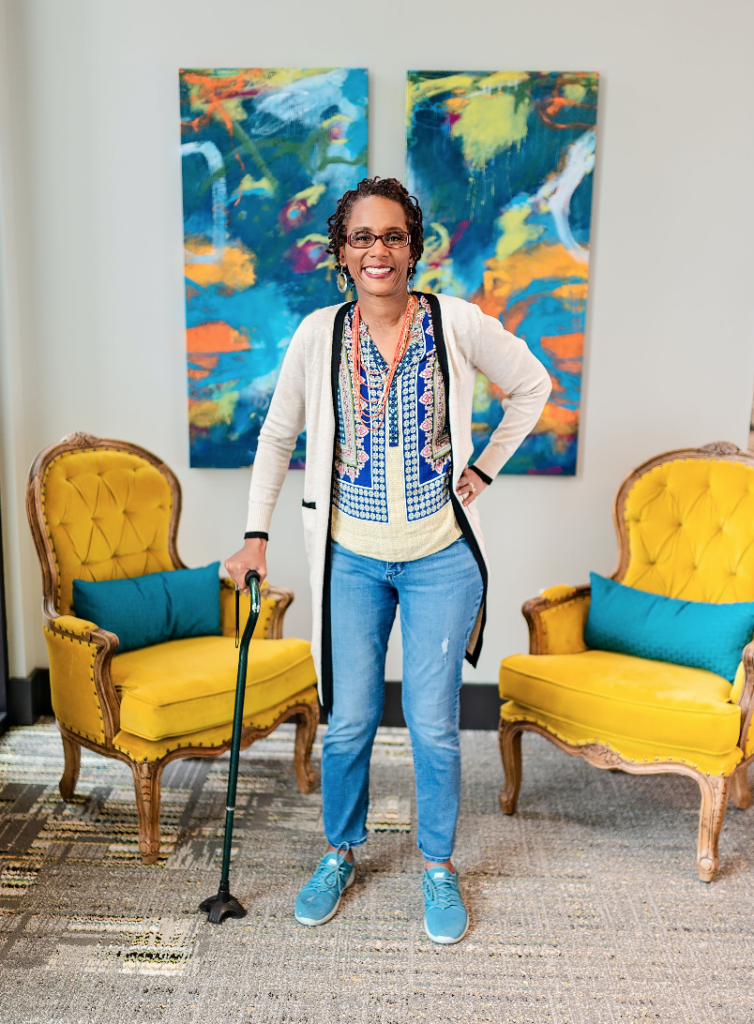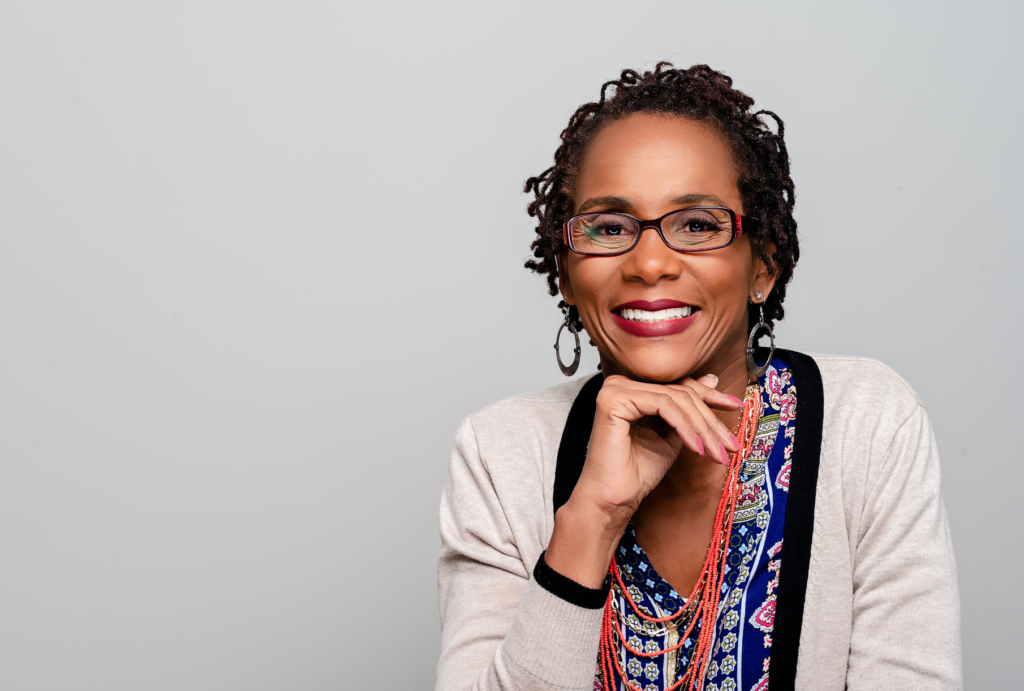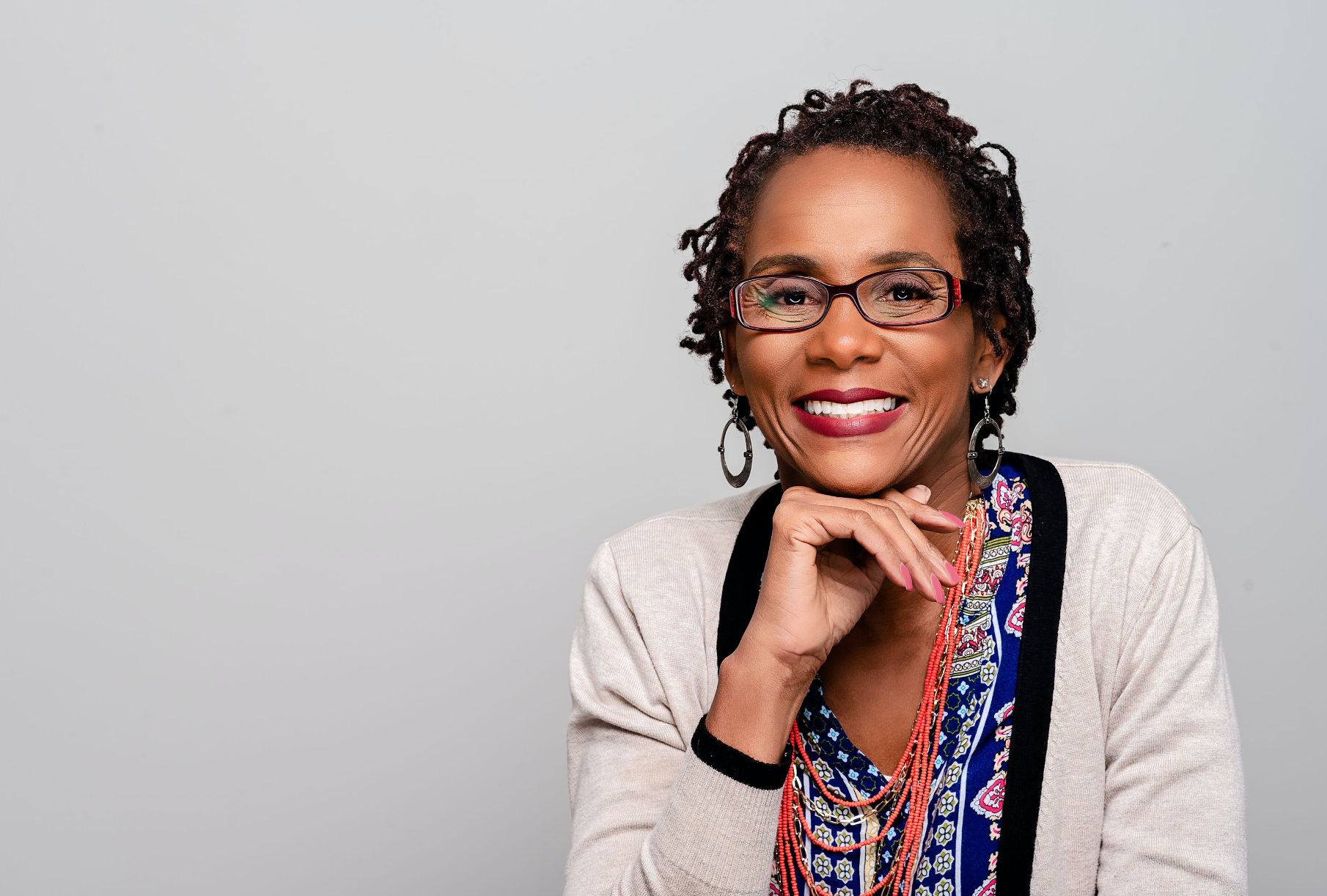Local Resident Shares What It’s Like Living With Multiple Sclerosis
Writer / Christy Heitger-Ewing
Photography Provided by Chanel Nicole
For many people raising three young kids, if a spouse were to come home and announce a need to move to Mexico, there would be a period of panic, or at the very least a moment of melancholy at the thought of all the work that comes with such a move. For Kimberly Pettus, who is always up for an adventure, when her husband Terence told her in 2007 that he had to move to Hermosillo, Mexico, for work, she replied, “What a great opportunity for our family.”
“Terence would go to work and I’d take the kids out to explore,” Pettus says. “I called it our adventures.”
She soon learned that MapQuest doesn’t work so well in Mexico, but that didn’t deter her. Flying by the seat of her pants only made the adventure that much more spectacular. It was impossible not to pick up the language along the way – especially the children, whose developing minds were like little sponges that soaked up knowledge and verb conjugations.
“I often used my 5-year-old as an interpreter, asking, ‘What did they just say?’” Pettus says.
The family lived in Mexico twice throughout a span of four years. By the time they returned to the states for good, the children were fluent in Spanish. They have lived in Louisville for the past two years.
In December of 2018, Pettus set out on a new adventure – this one, unfortunately, not so fun or exciting. She began dropping things from her left hand, but it wasn’t due to clumsiness. In fact, she didn’t even realize things were falling from her fingers because her hand was numb. Suspecting carpal tunnel syndrome as the culprit, she went to see a neurologist for an exam.

“I’m an expert in nothing but know everything,” Pettus says with a chuckle.
Soon thereafter, she began losing feeling in her entire left side, which made her wonder if she was battling something bigger than carpal tunnel syndrome. Balance issues also plagued her so doctors ran tests, including an MRI, which showed that Pettus had lesions on her brain and spinal cord. That’s when they determined she had multiple sclerosis (MS), a disease that affects the central nervous system. With MS, the immune system attacks the protective layer around nerve fibers, causing inflammation and lesions, making it difficult for the brain to send signals to the rest of the body. According to the National Multiple Sclerosis Society, more than 1,000,000 people in the U.S. live with MS.
After her diagnosis, she began researching the disease and found that African American women often don’t seek out a neurologist until they start exhibiting symptoms. As a result, they are often misdiagnosed and therefore receive inadequate health care. While she was relieved to know what she was dealing with, she was not yet ready to accept her new reality. Initially, Pettus was determined to go on living her life with the gusto to which she had become accustomed. The problem was that her body pushed back on that plan.
“I would overdo it and my body would go, ‘You know what? That was too much so we’re going to sit down for awhile,’” Pettus says. “I’d be wiped out for two days.”
MS is a progressive disease so symptoms typically worsen with time. In an effort to keep her mobile, last year her husband brought home a snazzy walker-wheelchair that had cool features and a leopard print design. Though it was a thoughtful gesture, Pettus was irked, mostly by what the equipment represented.
“When he presented it to me, he asked what I thought and I said, ‘I think it’s a walker and I’m barely 50 years old. What do you think I think?’” Pettus says. “My feelings were hurt.”
Despite her frustrations, she knew she needed it. She also knew that her engineer husband had her best interest at heart.
“I still wanted to go places and do things,” Pettus says. “For example, there was something going on at the park, and I was going to do what I did before which is walk to the area where I always go, but I couldn’t. Then I realized when I got there I would need to sit down and I wouldn’t have any place to sit. That was a revelation of, ‘You might not want this thing, but you need it.’ That’s when I started using my walker.”
Pettus was thrilled when she came across a book called “The Wahls Protocol” written by Terry Lynn Wahls, a physician who suffers from MS. The book is all about feeding the brain through diet changes. Pettus admits that some of the changes were tough to make, like eliminating sugars and introducing liver and organ meats. The diet is also rich in antioxidant foods like berries.
“In the beginning I was eating a bunch of sugar, which exacerbates MS symptoms and causes flare-ups,” Pettus says.
The other adjustment was learning to accept that she would have to take medicines. Prior to getting MS, Pettus didn’t even swallow aspirin. With MS, however, she had to narrow in on the right medicinal protocol, which meant trying different drugs, not all of which worked. One upset her stomach and another wreaked havoc on her digestive system. Now she does a five-hour infusion twice per year. These infusions are called DMTs, or disease modifying therapies.
“The point is to try and stop the progression,” Pettus says. “I think I’ll be on them indefinitely.”
Pettus always shares her story with others who are facing their own health challenges, in hopes that they will feel less alone.

“Your issue might not be MS, but we’ve all got something going on,” Pettus says. “My purpose is to motivate people no matter where they are.”
Just prior to COVID-19, she started giving motivational speeches – her theme being “rethink, innovate and change where you are.” It’s based off the fact that when she was first diagnosed, she was reluctant to accept it. Once she realized that refusing to accept reality wasn’t doing her any good, she had to rethink and reinvent herself. Those who have listened her talks have told her how much they appreciate her authenticity.
“Someone told me that their mom has Alzheimer’s and that my talk helped her deal with coming to terms with it,” says Pettus, a certified public accountant who works for Humana.
Though Pettus didn’t plan this route in life, she has learned to settle into her new normal. Part of doing that is identifying her gifts and utilizing them.
“One of the things we are all very good at is saying what we can’t do,” Pettus says. “Everybody has something they can do, so I encourage people to figure out what that is.”
She asks people to pose the following questions to themselves: What do I care about? What are my strengths? What am I good at?
Right now, due to COVID-19, her talks are all virtual, but her goal down the road is to do them live.
“My mother used to always say, ‘Can’t nobody shut me up,’” Pettus says. “I’ve always been one to talk, and I have a billion ideas an hour.”






Comments 3
What an inspirational story! I especially appreciated the part about everyone having “something going on”. It’s true, we all have something to overcome, having a positive outlook can change your perspective for the better!
What an encouraging and inspiring article! I, too, am grateful for your openness and willingness to share your journey with others. I know your words are and will be beneficial to others whether they have a debilitating diagnosis or not. You are such a beautiful soul, Kimberly. May God continue to bless you along the way.
Thank you for your courage to share your journey and give others hope. I love this “rethink, innovate and change where you are.” Thx you.